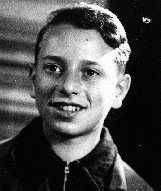You searched for: FACEBOOK代全世界推广开户【TG飞机:@bapingseo】谷歌seo网站推荐【TG电报:@bapingseo】尼日利亚做广告【Telegram:@bapingseo】128棋牌下载hi合乐888手机?20220707j5C1Wb.html
<< Previous | Displaying results 301-325 of 1617 for "FACEBOOK代全世界推广开户【TG飞机:@bapingseo】谷歌seo网站推荐【TG电报:@bapingseo】尼日利亚做广告【Telegram:@bapingseo】128棋牌下载hi合乐888手机?20220707j5C1Wb.html" | Next >>
-
Beer Hall Putsch (Munich Putsch)
ArticleOn November 8–9, 1923, Hitler and the Nazi Party led an attempt to overthrow the German government. This attempted coup came to be called the Beer Hall Putsch.
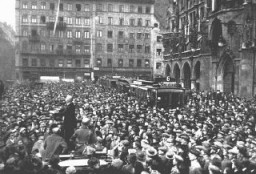
-
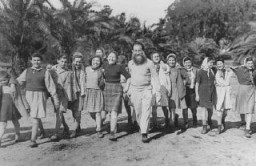
-
Röhm Purge
ArticleThe Röhm Purge (the “Night of the Long Knives") was the murder of the leadership of the SA (Storm Troopers), the Nazi paramilitary formation led by Ernst Röhm. Learn more.
-
Gino Bartali - Maps
Media EssayGino Bartali was an Italian cyclist who won the Tour de France in 1938 and 1948. During World War II, he used his cycling career as a cover to aid in the rescue of Jews. Risking his life if caught, Bartali cycled far distances to deliver false identity cards and secret documents. His efforts helped save hundreds of Jews seeking refuge from other countries in Europe.
-
Pants belonging to Marjan Glass
ArtifactPants worn by Marjan Glass as he dug anti-tank ditches for the defense of Warsaw, Poland, and then as he hastily fled the city ahead of the German advance on September 7, 1939. Glass, a lawyer, escaped with his wife and three-year-old son, and his wife's mother and brother. He left without taking the time to change from his soiled work clothing. [From the USHMM special exhibition Flight and Rescue.]
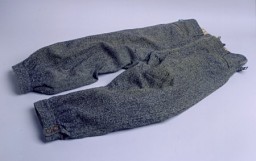
-
Lion Feuchtwanger in New York
PhotoAuthor Lion Feuchtwanger in New York, November 17, 1932. Feuchtwanger's 1930 novel Erfolg (Success) provided a thinly veiled criticism of the Beer Hall Putsch and Hitler's rise to leadership in the Nazi Party. He was targeted by the Nazis. After the Nazi takeover on January 30, 1933, his house in Berlin was illegally searched and his library was plundered during his lecture tour in the United States.
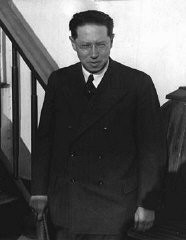
-
Fritz Glueckstein's family on an outing
PhotoFritz Glueckstein (left) on a picnic with his family in Berlin, Germany, 1932. Fritz's father was Jewish—he attended services in a liberal synagogue—and his mother was Christian. Under the Nuremberg Laws of 1935, Fritz would be classified as mixed-raced (Mischling), but since his father was a member of the Jewish religious community, Fritz was classified as a Jew.
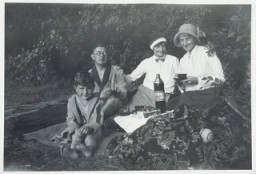
-
Page from Otto Wolf's diary
PhotoOtto Wolf (1927-1945) was a Czech Jewish teenager who chronicled his family's experience living in hiding in rural Moravia during World War II. His diary was published posthumously. This image shows book 4 of Otto Wolf's diary. This is the first entry by Felicitas Garda (Otto Wolf's sister) dated April 17, 1945. Felicitas continued Otto's diary after his disappearance.
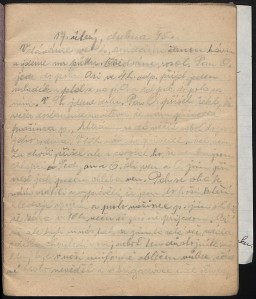
-
The White Rose Opposition Movement
ArticleThe White Rose, led by students including Hans and Sophie Scholl, was an anti-Nazi group during WWII. Its members spread leaflets denouncing the regime.
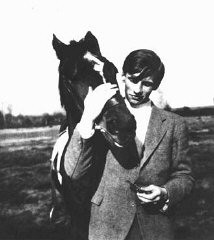
-
Hajj Amin al-Husayni: The Mufti of Jerusalem
ArticleHajj Amin al-Husayni, former Mufti of Jerusalem, participated in a pro-Axis coup in Iraq in 1941. Learn about his pro-Axis actions during WWII.
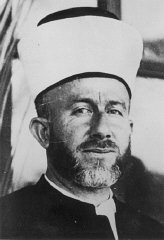
-
Bertolt Brecht
ArticleBertolt Brecht was a leading German dramatist, well known for his political films and plays. His works were burned during the Nazi book burnings of 1933. Learn more.
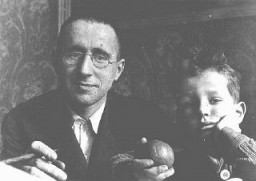
-
Rudolf Hilferding
ArticleRudolf Hilferding was a well-known socialist. Also Jewish, he was persecuted by the Nazis and later died in prison. His books were burned in Germany in 1933.
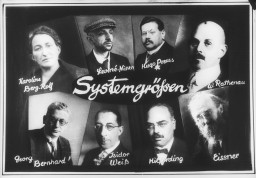
-
Ferdinand Lassalle
ArticleFerdinand Lassalle was a founder of the German labor movement. Some 70 years after his death, his works were burned in Nazi Germany for their socialist doctrine.
-
Hermann Göring
ArticleBrief overview of the charges against Hermann Göring, highest ranking Nazi official tried during the International Military Tribunal at Nuremberg.
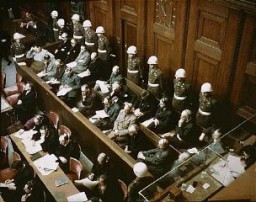
-
Franklin Delano Roosevelt
ArticleFranklin D. Roosevelt was 32nd president of the US. Learn about the domestic and international challenges FDR faced as president during World War II.
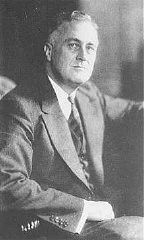
-
Kurt Pauly
ID CardKurt was born to Jewish parents in the city of Aachen, where his mother's family had resided since the 18th century. His father, though trained as a chef, worked as a butcher and also managed several stores for his father-in-law. The Paulys lived over one of those shops in the nearby suburb of Eilendorf. Kurt enjoyed large family gatherings, where he would play with his cousins, Anne and Margot Frank. 1933–39: When the Nazis came to power in 1933, the situation drastically changed for the Paulys.…
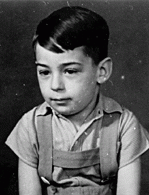
-
Martin Weiss
ID CardMartin was one of nine children born to orthodox Jewish parents in Veľká Poľana, a rural village in the Carpathian Mountains. His father owned a farm and a meat business, and his mother attended to the children and the home. Everyone in the family helped take care of the horses and cows. 1933–39: Martin attended the village's Czechoslovak schools, which were quite progressive. Like many of the other children, he looked forward to leaving the provincial life in Veľká Poľana. In 1938–1939, his…
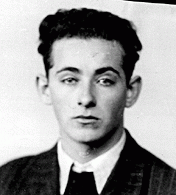
-
Boleslaw Brodecki
ID CardRaised by religious Jewish parents, Boleslaw and his older sister grew up in an apartment complex in a Jewish section of Warsaw. His father worked as an accountant. When Boleslaw was 8 years old, his mother died, and an aunt moved in to help raise him and his sister. Boleslaw loved electronics. When he was 10 years old, he succeeded in building a portable radio. 1933-39: The Germans attacked Warsaw on September 8, 1939. The bombing was relentless. Boleslaw's father wouldn't leave his ill relatives but…
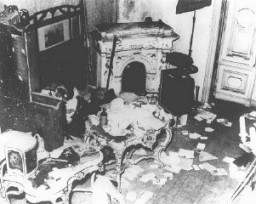
-
Emanuel (Manny) Mandel
ID CardManny was born to a religious Jewish family in the port city of Riga, Latvia. Shortly after Manny's birth, his father accepted a post as one of the four chief cantors in Budapest and the family returned to Hungary, where they had lived before 1933. Manny's father was based at the renowned Rombach Street synagogue. Between the wars, Budapest was an important Jewish center in Europe. 1933-39: Manny's father wouldn't let him have a bicycle. He thought someone might take it away from him because he was…
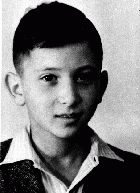
-
Isak Saleschutz
ID CardIsak was one of seven children born to devout Hasidic Jewish parents living in Dubas. By 1900, all of his siblings had immigrated to America; Isak remained in Poland due to his strong religious convictions. Through an arranged marriage, he was wed to Ester Berl when he was 18. They settled in Kolbuszowa, a small town near Dubas, where Isak ran a successful wholesale general store. 1933-39: On September 9, 1939, the German army occupied Dubas. They hanged two Jews to demonstrate the consequences of not…
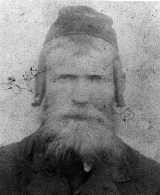
-
Joseph von Hoppen Waldhorn
ID CardJoseph was the youngest of three children born to immigrant Jewish parents. His Polish-born father was a former officer in the Austro-Hungarian army who had met and married Joseph's Hungarian-born mother during World War I. Joseph was raised in a religious household and grew up speaking French. 1933-39: Joseph's mother says it's better here in Paris than in the poor village where she grew up. Unlike his mother, who speaks broken French, Joseph and his older sisters have grown up speaking French fluently.…
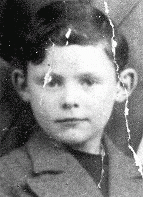
-
Saul Ingber
ID CardSaul was born to a Jewish family in the small northern Transylvanian town of Moisei, famous for its 18th-century monastery, to which many Christians came on pilgrimage. Saul's family was religious. His father transported lumber to several mills in the area. 1933-39: Saul and his brothers attended a Jewish school held at their neighbor's home. A rabbi led them in prayers and they learned quotations from holy texts. After his schooling he needed to learn a trade, so he decided to become a tailor. Jews were…
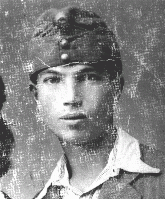
-
Fischel (Philip) Goldstein
ID CardFischel was the youngest of five children. He came from a Jewish family of artisans; his father was a tailor, his uncles were furriers, and his sister was a dressmaker. Fischel started his education at a Jewish parochial school at age 3, where he studied Hebrew and Yiddish. He continued his education at Jewish private schools until age 10, when he entered Polish public schools. 1933-39: After graduating from the Polish public school system at age 14, Fischel started an apprenticeship in his father's…
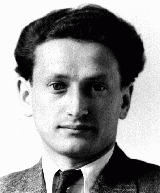
-
Meyer (Max) Rodriguez Garcia
ID CardMax was born to a Jewish family in Amsterdam. He lived in a working-class district occupied by many diamond polishers, of which his father was one. In the 1920s and 30s Amsterdam was a cosmopolitan city with a diverse population. Though his father hoped Max would follow him in the diamond trade, Max dreamed of becoming an architect. 1933-39: Max's happiest years were with close friends in school. His father encouraged him to learn by bringing home newspapers to help his English. After 1933 German Jews…
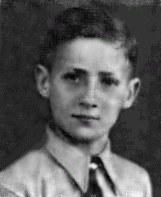
-
Martin Spett
ID CardKnown as Monek, Martin was the elder of two children raised by Jewish parents in the large town of Tarnow. His mother was an American citizen who had been raised in Poland. His father worked at the city's tax office. As a child, Martin liked to collect stamps and catch lizards. His parents wanted him to be a pharmacist, but he wanted to be an artist when he grew up. 1933-39: When the Germans occupied Tarnow in September 1939 after war began, Martin was 10 years old. The soldiers, in beautiful uniforms,…
